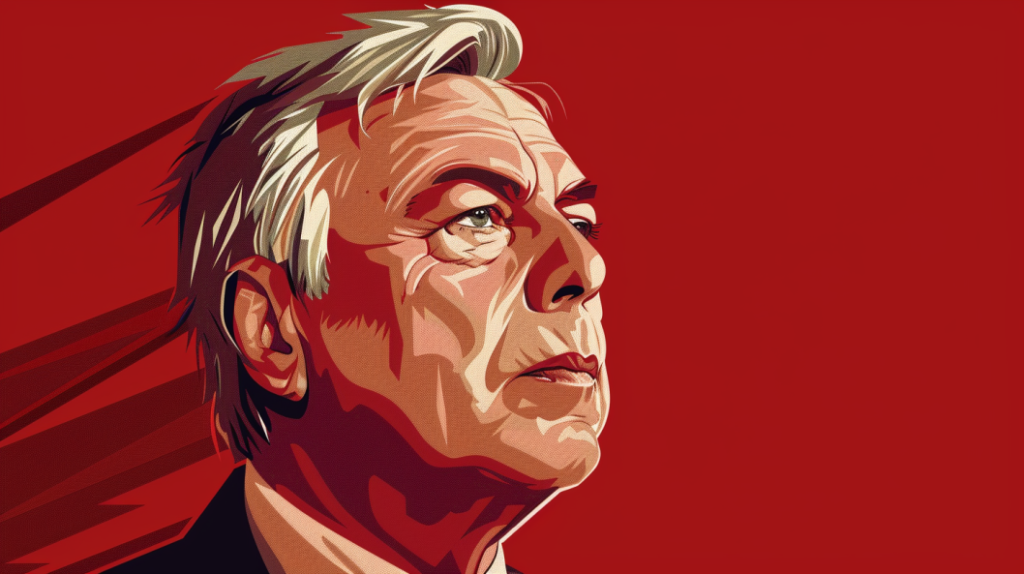Carlo Ancelotti, known for his calm demeanor, tactical understanding, and unparalleled success across multiple leagues, Ancelotti has cemented his legacy as one of the greatest managers in the sport’s history. He is one of the most successful and respected coaches in the world of football. With a career spanning over three decades, Ancelotti has achieved remarkable success at some of the biggest clubs in Europe, including AC Milan, Chelsea, Paris Saint-Germain, Real Madrid, and Bayern Munich. His coaching philosophy, tactical innovations, and ability to build strong relationships with players have made him a revered figure in football. Studying successful coaches like Ancelotti is crucial for aspiring coaches and football enthusiasts alike, as it provides valuable insights into the art of management and the strategies that lead to success.
The Early Years: Carlo Ancelotti’s Journey to Becoming a Coach
Before starting his coaching career, Carlo Ancelotti had a successful playing career as a midfielder. He played for several Italian clubs, including Parma, Roma, and AC Milan. While he was not a superstar player, Ancelotti deeply understood the game and was known for his tactical intelligence and leadership qualities.
After retiring as a player in 1992, Ancelotti quickly transitioned into coaching. He started his coaching journey at Reggiana, a small Italian club, where he gained valuable experience working with limited resources and managing a team with modest ambitions. This early experience laid the foundation for his future success as a coach.
From AC Milan to Real Madrid: Ancelotti’s Successes as a Manager
Carlo Ancelotti’s managerial career has been nothing short of remarkable. He has managed some of the biggest clubs in Europe and has consistently achieved success wherever he has gone.
At AC Milan, Ancelotti enjoyed great success, winning two UEFA Champions League titles in 2003 and 2007. During his tenure, he also won the Serie A title in 2004 and 2011, establishing Milan as one of the dominant forces in Italian football.
Ancelotti’s next stop was at Chelsea, where he won the Premier League title in his first season in charge. He also led Chelsea to an FA Cup victory, reaching the UEFA Champions League final in 2008.
After a brief stint at Paris Saint-Germain, Ancelotti took charge of Real Madrid in 2013. He led the club to their tenth UEFA Champions League title in his first season, ending a 12-year drought. He also won the Copa del Rey and the FIFA Club World Cup at Real Madrid.
Ancelotti’s success continued at Bayern Munich, where he won the Bundesliga title in his first season. He also led the team to two DFB-Pokal titles, reaching the UEFA Champions League semi-finals.
The Art of Management: Ancelotti’s Coaching Philosophy
One of the key reasons for Ancelotti’s success as a coach is his unique approach to management. Ancelotti believes in building strong relationships with his players and creating a positive and harmonious environment within the team. He emphasizes the importance of trust, respect, and open communication between players and coaches.
Ancelotti’s coaching philosophy is centered around creating a balanced and cohesive team. He believes a successful team functions as a collective unit, with each player understanding their role and contributing to its overall success. Ancelotti prioritizes teamwork and encourages his players to work together towards a common goal.
In addition to his interpersonal skills, Ancelotti possesses a deep tactical knowledge of the game. He understands the importance of adapting tactics to suit different opponents and situations. Ancelotti is known for his ability to read the game and make strategic changes that can turn the tide in his team’s favor.
Key Tactics: How Ancelotti’s Strategic Mindset Helps His Teams Win
Ancelotti’s tactical innovations have played a crucial role in his teams’ success. He is known for his ability to adapt to different opponents and situations, and his tactical flexibility has been a key factor in his teams’ victories.
Ancelotti’s key tactics are his use of formations and player positioning. He is not afraid to experiment with different formations and adapt them to suit the strengths and weaknesses of his players. Ancelotti’s ability to find the right balance between attack and defense has been instrumental in his team’s success.
Another key aspect of Ancelotti’s tactical approach is his emphasis on player positioning. He believes in allowing players to express themselves on the field while ensuring they understand their defensive responsibilities. Ancelotti’s teams are known for their fluidity and ability to seamlessly transition between attack and defense.
The Importance of Communication: Ancelotti’s Approach to Building Stronger Teams

Communication is a fundamental aspect of Ancelotti’s coaching philosophy. He believes clear and honest communication is essential for building strong relationships with players and creating a positive team environment.
Ancelotti is known for his calm and approachable demeanor, which helps create an atmosphere of trust and respect within the team. He encourages open dialogue between players and coaches, allowing for constructive feedback and discussion.
Building trust and respect with players is key to Ancelotti’s communication style. He takes the time to understand each player individually, their strengths, weaknesses, and motivations. This personalized approach helps him build strong relationships with his players, leading to better performance on the field.
Player Development: How Ancelotti Helps Players Reach Their Full Potential
Player development is another area in which Ancelotti excels as a coach. He has a proven track record of helping players reach their full potential and succeed.
Ancelotti understands that each player is unique and has different development needs. He takes a personalized approach to player development, working closely with each player to identify their strengths and weaknesses and create an improvement plan.
Under Ancelotti’s guidance, several players have thrived and reached new career heights. Players like Andrea Pirlo, Frank Lampard, Zlatan Ibrahimovic, and Cristiano Ronaldo have all credited Ancelotti for playing a significant role in their development.
Challenges and Setbacks: How Ancelotti Deals with Adversity
Like any coach, Carlo Ancelotti has faced his fair share of challenges and setbacks throughout his career. However, his ability to overcome adversity and bounce back stronger sets him apart.
One example of a challenge Ancelotti faced was during his time at Chelsea when he had to deal with a dressing room filled with big personalities and egos. However, he created a harmonious environment within the team and led them to success.
Another setback Ancelotti faced was his time at Real Madrid when the team went through a difficult period of poor results. However, he remained calm and composed, made strategic changes, and turned the team’s fortunes around.
Ancelotti’s resilience and adaptability have been key to overcoming challenges and setbacks. He understands that setbacks are a part of the game and that it is important to learn from them and move forward.
The Future of Coaching: Ancelotti’s Vision for the Future of Football
Carlo Ancelotti has always been forward-thinking regarding the future of football. He believes technology and data analysis will play an increasingly important role in coaching and player development.
Ancelotti recognizes the value of data in analyzing player performance and making informed decisions. He believes technology can provide valuable insights into player fitness, performance levels, and tactical analysis.
However, Ancelotti also emphasizes the importance of maintaining the human element of coaching. He believes that while technology can provide valuable information, the coach can ultimately build relationships with players and understand their needs, leading to success.
The Legacy of Carlo Ancelotti: What He Has Contributed to the World of Football
Carlo Ancelotti’s impact on the world of football is undeniable. He has contributed to coaching philosophy and tactics, and his success has inspired a new generation of coaches.
Ancelotti’s emphasis on building strong relationships with players and creating a positive team environment has profoundly impacted coaching philosophy. His approach has shown that success is not just about tactics and strategy but also about creating a harmonious and cohesive team.
Ancelotti’s tactical innovations, such as his use of formations and player positioning, have also had a lasting impact on the game. His ability to adapt to different opponents and situations has set him apart as one of the most tactically astute coaches in the world.
Lessons Learned: What We Can Learn from Carlo Ancelotti’s Coaching Career
We can learn several key lessons from Carlo Ancelotti’s coaching career. First and foremost, the importance of building strong relationships with players cannot be overstated. Ancelotti’s success is a testament to the power of trust, respect, and open communication within a team. Secondly, Ancelotti’s ability to adapt tactically and strategically is a valuable lesson for coaches. Football is constantly evolving, and coaches must be willing to adjust their tactics to suit different opponents and situations. Lastly, Ancelotti’s resilience and ability to overcome challenges and setbacks is an important lesson for all. In the face of adversity, it is important to remain calm, composed, and focused on finding solutions.
Carlo Ancelotti’s coaching career is a testament to his exceptional skills as a manager and his ability to achieve success at the highest level. His unique coaching philosophy, tactical innovations, and emphasis on building strong relationships with players have made him one of the most respected coaches in the world of football. Studying successful coaches like Ancelotti provides valuable insights into the art of management and the strategies that lead to success. His career inspires aspiring coaches and football enthusiasts alike, reminding us of the importance of trust, respect, adaptability, and resilience in achieving our goals. Carlo Ancelotti’s legacy will continue to shape the football world for years, and his contributions to coaching philosophy and tactics will be remembered as some of the most influential in the game’s history.
If you’re a football enthusiast wanting to stay updated on the latest coaching strategies and insights, Coach Watch is the perfect article for you. In this informative piece, you’ll find valuable information about renowned coach Carlo Ancelotti and his remarkable journey in football. Discover how Ancelotti’s unique coaching style has influenced some of the biggest clubs in the sport. To delve deeper into this fascinating topic, check out this article on kicka.football.






